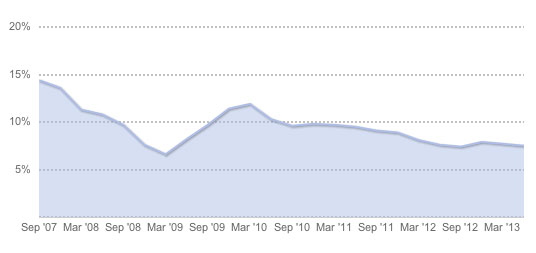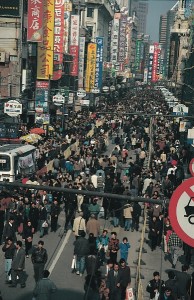
Since the start of the opening-up and reform period in 1978, the rest of the world has been stupefied by China’s long period of very high growth. Now all we hear about is that growth is slowing down. Further, this time the chinese authorities are not offsetting the slowdown by large fiscal and monetary stimuli: the People’s Bank of China is presiding unmoved over a credit contraction, large fiscal stimuli are not on the cards, partly no doubt because China’s debt amounts to 200 percent of her GDP.
In the aggregate, this is not bad news: growth is currently 7,5% per year, a little above the long-term objective of the authorities, 7%. In fact, it is a welcome slowdown to the extent that the growth of the last decade was perceived as unsustainable.
These numbers, like most big aggregates, only scratch at the surface of things. What happens underneath is the start of a deep transformation of the Chinese economy, which may be followed by other emerging economies.
For the last twenty years, China has entrusted the modernisation of her economy to exports, and has invested massively in infrastructure projects. It has been an export-led, investment-led economy. It has relied on a cheap currency and on a powerful state, able to carry out very large infrastructure investments without too much opposition from local populations. In so doing, it has favoured, strengthened and consolidated powerful clusters of State-owned enterprises with close ties to political power. Lastly, it has ensured its financial independence by accumulating foreign reserves and promoting internal saving.

This very successful development model may have run its course. On the one hand, the rest of the world won’t absorb Chinese exports with its usual alacrity for some time; on the other hand, repression of the Chinese consumer will have to end some time. In addition, infrastructure investment on the scale of the past decades risks becoming increasingly wasteful.
These are the reasons for what is called “rebalancing” of the Chinese economy: to rely more on domestic demand, especially consumption, less on exports. This transition is needed, if only to avoid continuing trade conflicts. It is difficult and painful, since all changes create losers as well as winners. But the Chinese authorities have shown, over the years, a keen sense of survival. Chances are this rebalancing will be successful.


